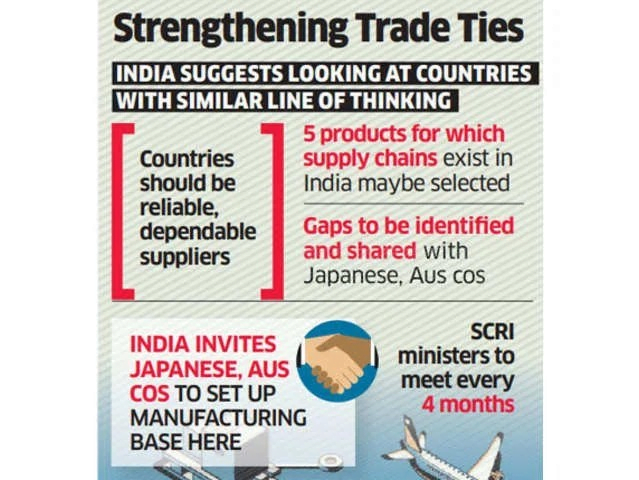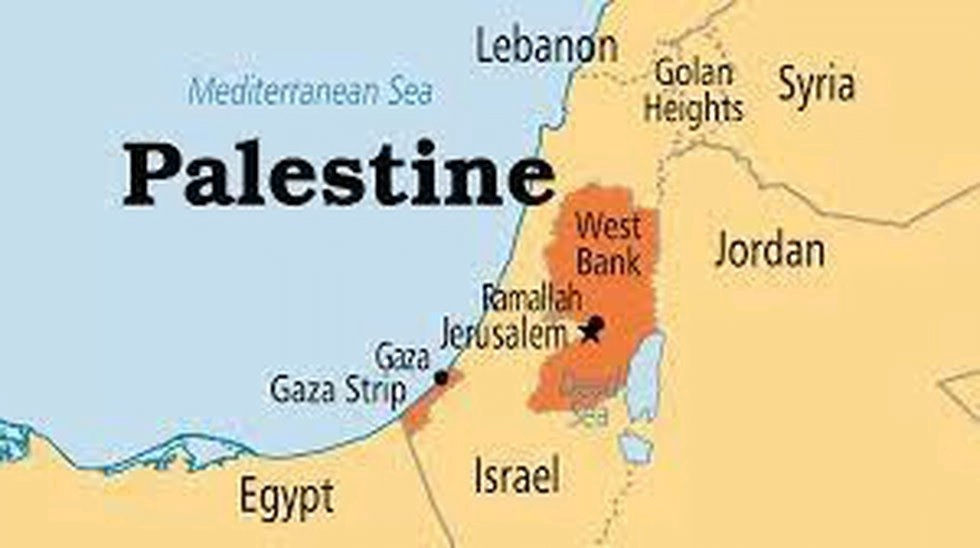IASbaba's Daily Current Affairs Analysis
Archives
(PRELIMS + MAINS FOCUS)
Government of National Capital Territory of Delhi (Amendment) Act, 2021
Part of: GS Prelims and GS – II – Polity; Centre-State Relations
In news
- The Ministry of Home Affairs issued a gazette notification stating that the provisions of the Government of National Capital Territory of Delhi (Amendment) Act, 2021, would be deemed to have come into effect from April 27.
Key takeaways
- The Bill amends the Government of National Capital Territory (NCT) of Delhi Act, 1991.
- It provides a framework for the functioning of the Legislative Assembly (LA) and the government of the NCT of Delhi.
- It amends certain powers and responsibilities of the LA and the Lieutenant Governor (LG).
- It provides that the term “government” referred to in any law made by the LA will imply LG.
- It allows the Legislative Assembly to make Rules to regulate the procedure and conduct of business in the Assembly.
- It provides that such Rules must be consistent with the Rules of Procedure and Conduct of Business in the Lok Sabha.
Do you know?
- It prohibits the LA from making any rule to enable itself or its Committees to:
- consider the matters of day-to-day administration of the NCT of Delhi and
- conduct any inquiry in relation to administrative decisions.
- Assent to Bills:
- The Act requires the LG to reserve certain Bills passed by the LA for the consideration of the President.
- It requires the LG to also reserve those Bills for the President which incidentally cover any of the matters outside the purview of the powers of the Legislative Assembly.
- LG’s opinion for executive actions:
- The Act specifies that all executive action by the government, whether taken on the advice of the Ministers or otherwise, must be taken in the name of the LG.
- The Bill adds that on certain matters, as specified by the LG, his opinion must be obtained before taking any executive action on the decisions of the Minister/ Council of Ministers.
Supply Chain Resilience Initiative (SCRI)
Part of: GS Prelims and GS – II – International Relations
In news
- India, Japan and Australia formally launched the Supply Chain Resilience Initiative (SCRI) to build resilient supply chains in the Indo-Pacific region as they seek to reduce dependence on China.
Key takeaways
- Aim: To create a virtuous cycle of enhancing supply chain resilience with a view to eventually attaining strong, sustainable, balanced and inclusive growth in the region.
- Some of the joint measures shall include: (1) Supporting the enhanced utilisation of digital technology; (2) Trade and investment diversification
- It will also focus on sharing best practices on supply chain resilience, holding investment promotion events, buyer-seller matching events to provide opportunities for stakeholders to explore the possibility of diversification of their supply chains.
- Expansion of the SCRI may be considered based on consensus, if needed, in due course.

Maiden trial of Python-5 conducted
Part of: GS Prelims and GS – III – Defence and security
In news
- DRDO conducts maiden trial of Python-5 Air to Air Missile.
Key takeaways
- Tejas, India’s indigenous Light Combat Aircraft, added the 5th generation Python-5 Air-to-Air Missile (AAM) in its air-to-air weapons capability
- Trials were also aimed to validate enhanced capability of Derby Beyond Visual Range (BVR) AAM on Tejas.
- The trials also validated its performance under extremely challenging scenarios.
- The trials met all their planned objectives.
Human Rights Watch (HRW)
Part of: GS Prelims and GS-II – International Relations
In news
- Human Rights Watch said that Israel is committing the crime of “apartheid” by seeking to maintain Jewish “domination” over Palestinians and its own Arab population.

Important value additions
Human Rights Watch (HRW)
- It is an international NGO,
- Headquarters: New York City.
- It conducts research and advocacy on human rights.
- The group pressures governments, policy makers, companies, and individual human rights abusers to denounce abuse and respect human rights
- It often works on behalf of refugees, children, migrants, and political prisoners.
Do you know?
- Human Rights Watch in 1997 shared in the Nobel Peace Prize as a founding member of the International Campaign to Ban Landmines and it played a leading role in the 2008 treaty banning cluster munitions.
- It was co-founded by Robert L. Bernstein and Aryeh Neier as a private American NGO in 1978, under the name Helsinki Watch, to monitor the then-Soviet Union’s compliance with the Helsinki Accords.
Foundation stone of the Integrated Solar Dryer and Pyrolysis pilot laid down
Part of: GS Prelims and GS-III – Sci & tech; Waste management
In news
- The foundation stone of the Integrated Solar Dryer and Pyrolysis pilot was laid by the Director, CSIR- Central Leather Research Institute (CLRI), Chennai.
Key takeaways
- The pilot is part of the Indo-German project ‘Pyrasol’ launched to transform urban organic waste into biochar and energy in smart cities.
- It was awarded to CSIR-CLRI by the Indo-German Science & Technology Centre.
- It will ultimately lead to technology development for the joint processing of Fibrous Organic Waste (FOW) and Sewage Sludge (SS) of Indian smart cities into hygienic and highly valuable biochar associated with energy recovery, carbon sequestration and environmental improvement.
Do you know?
- Indo-German Science & Technology Centre (IGSTC) was established by India and Germany to facilitate Indo-German R&D networking with emphasis on industry participation, applied research and technology development.
- IGSTC through its flagship program ‘2+2 Projects’, catalyses innovation centric R&D projects by synergising the strength of research and academic institutions and public/private industries from India and Germany.
Miscellaneous
My Octopus Teacher
- The 85-minute documentary feature, My Octopus Teacher, won the best documentary award at the recent Academy Awards.
- It is about the relationship that developed between a human being and a wild octopus.
- It is a 2020 Netflix Original documentary film directed by Pippa Ehrlich and James Reed
- It documents a year spent by filmmaker Craig Foster forging a relationship with a wild common octopus in a South African kelp forest.
Kelp forests
- Kelp forests are under water areas with a high density of kelp, which covers a large part of the world’s coastlines.
- They are recognized as one of the most productive and dynamic ecosystems on Earth.
- Smaller areas of anchored kelp are called kelp beds.
- Kelp forests occur worldwide throughout temperate and polar coastal oceans.
- Kelps are large brown algae seaweeds that make up the order Laminariales.

(Mains Focus)
GOVERNANCE/ HEALTH
Topic:
- GS-2: Government policies and interventions for development in various sectors and issues arising out of their design and implementation.
Legislation & Covid-19 vaccine pricing
Context: During the hearing on issues related to the pandemic, the Supreme Court flagged differential pricing for vaccines, and directed the central government to clarify in its affidavit the basis and rationale for pricing.
How does the government regulate the pricing of drugs?
- To ensure accessibility, the pricing of essential drugs is regulated centrally through The Essential Commodities Act, 1955. Under Section 3 of the Act, the government has enacted the Drugs Prices Control Order (DPCO)
- The DPCO lists over 800 drugs as “essential” in its schedule, and has capped their prices.
- The capping of prices is done based on a formula that is worked out in each case by the National Pharmaceutical Pricing Authority (NPPA), which was set up in 1997.
Can the government regulate the price of Covid-19 vaccines through DPCO?
- Regulation through DPCO is not applicable for patented drugs or fixed-dose combination (FDC) drugs.
- This is why the price of the antiviral drug remdesivir, which is currently in great demand for the treatment of serious cases of Covid-19, is not regulated by the government.
- Recently, a government said that upon its request major manufacturers/marketers of the remdesivir injection had reported voluntary reduction in the Maximum Retail Price (MRP).
- Globally, the American biotechnology firm Gilead Sciences owns the patent for the drug. Several pharma companies have obtained a licence from Gilead to manufacture remdesivir.
- To bring vaccines or drugs used in the treatment of Covid-19 such as remdesivir under the DPCO policy, an amendment can be brought.
What legal avenues are available for the government to address differential pricing for vaccines?
- THE PATENTS ACT, 1970
- The law has two key provisions that could be potentially invoked to regulate the pricing of the vaccine.
- Section 100 of the Patents Act gives the central government the power to authorise anyone (a pharma company) to use the invention for the “purposes of the government”. This provision enables the government to license the patents of the vaccine to specific companies to speed up manufacturing and ensure equitable pricing.
- Under Section 92 of the Act, which deals with compulsory licensing, the government can, without the permission of the patent holder, license the patent under specific circumstances prescribed in the Act (national emergency or in circumstances of extreme urgency or in case of public non-commercial use)
- After the government issues a notification under Section 92, pharma companies can approach the government for a licence to start manufacturing by reverse engineering the product.
Challenges w.r.t COVID-19 Vaccines: However, in the case of biological vaccines like Covid-19, even though ingredients and processes are well known, it is difficult to duplicate the process from scratch. The process will also entail new clinical trials to establish safety and efficacy, which makes compulsory licensing less attractive.
- THE EPIDEMIC DISEASES ACT, 1897:
- Another legal route suggested by experts to regulate the pricing of vaccines is the Epidemic Diseases Act. This has been the main legal weapon for the government in dealing with the pandemic.
- Section 2 of this law gives the government “power to take special measures and prescribe regulations for the better prevention of the spread of dangerous epidemic disease”.
- This broad power can be used to take measures to regulate pricing. However, the law lacks the teeth to implement such an important policy framework.
Way Ahead
- Apart from these legislative options, experts suggest that the central government procuring directly from the manufacturers could be the most beneficial route to ensure equitable pricing. As the sole purchaser, it will have greater bargaining power.
Connecting the dots:
(TEST YOUR KNOWLEDGE)
Model questions: (You can now post your answers in comment section)
Note:
- Correct answers of today’s questions will be provided in next day’s DNA section. Kindly refer to it and update your answers.
- Comments Up-voted by IASbaba are also the “correct answers”.
Q.1 Which of the following country is not a part of Supply Chain Resilience Initiative (SCRI)?
- India
- Japan
- Australia
- South Africa
Q.2 Consider the following statements regarding Kelp forests:
- They occur worldwide throughout Tropical coastal oceans.
- They are recognized as one of the most productive and dynamic ecosystems on Earth.
Which of the above is/are correct?
- 1 only
- 2 only
- Both 1 and 2
- Neither 1 nor 2
ANSWERS FOR 28th April 2021 TEST YOUR KNOWLEDGE (TYK)
| 1 | D |
| 2 | C |
| 3 | A |
| 4 | C |
Must Read
On making Social Welfare Universal:
On cutting vaccine wastage:
On India-US relationship:











